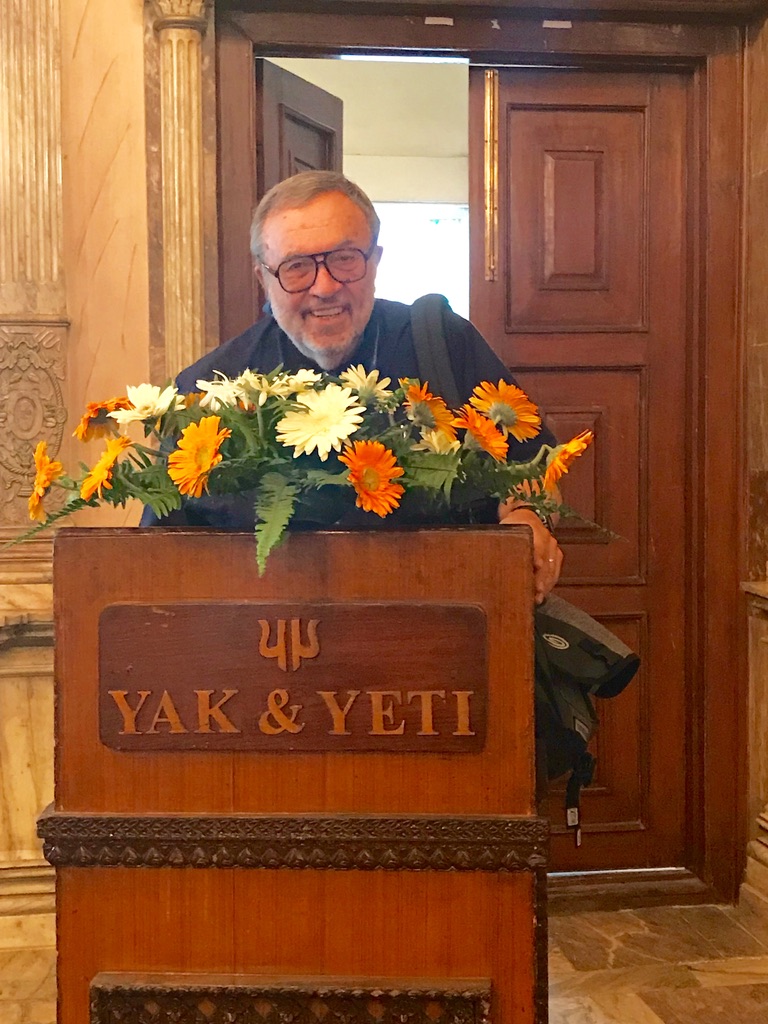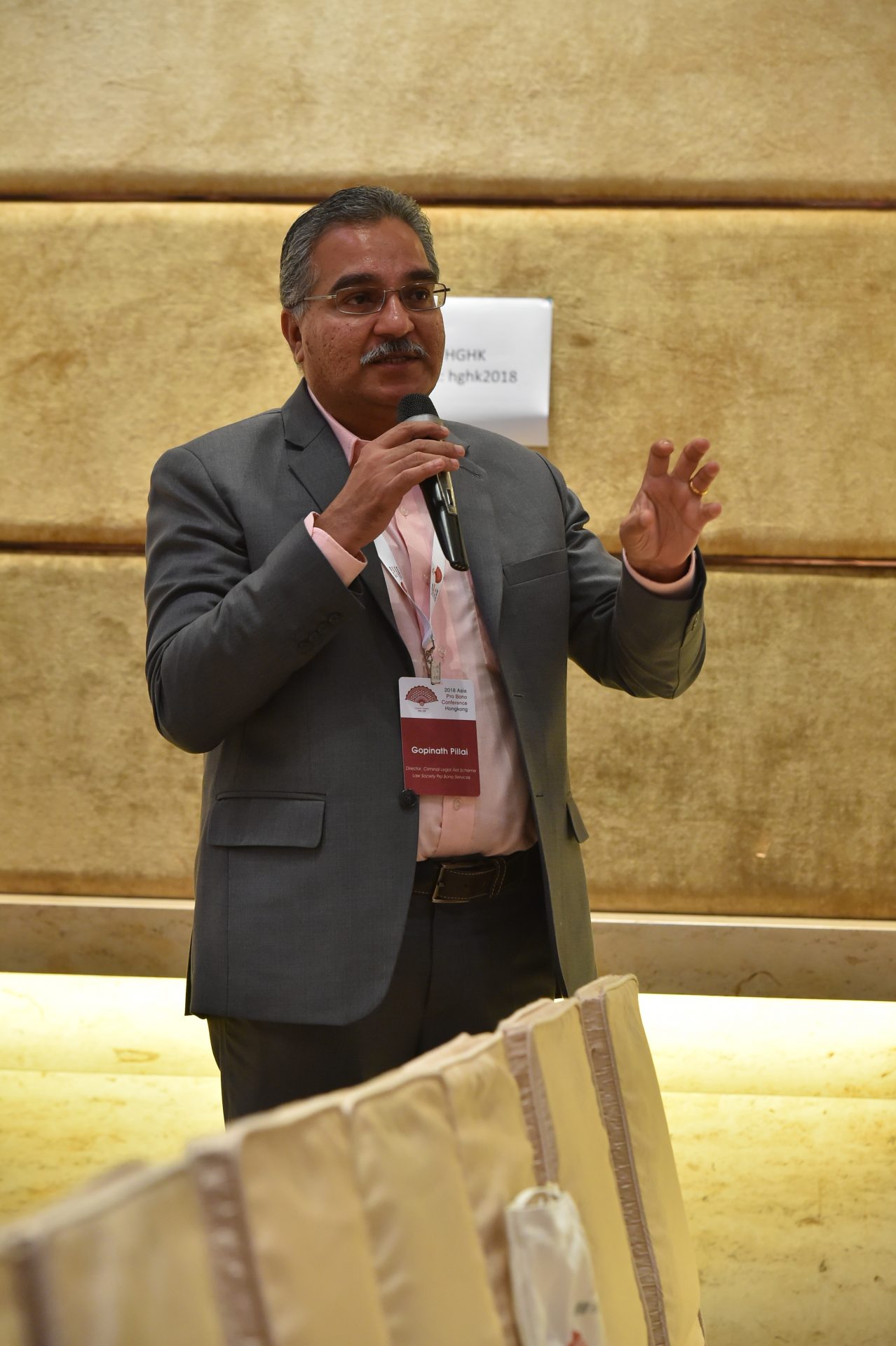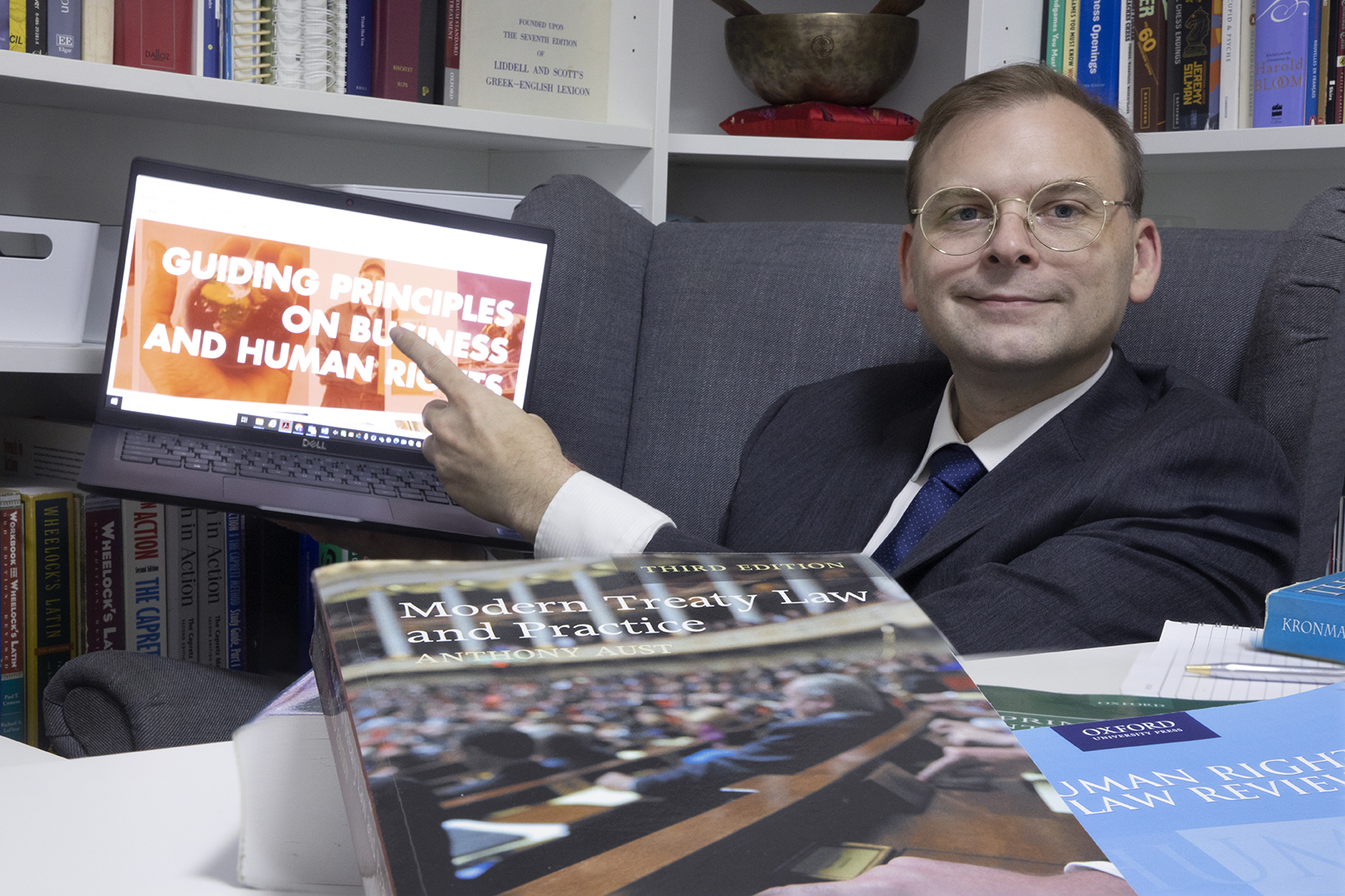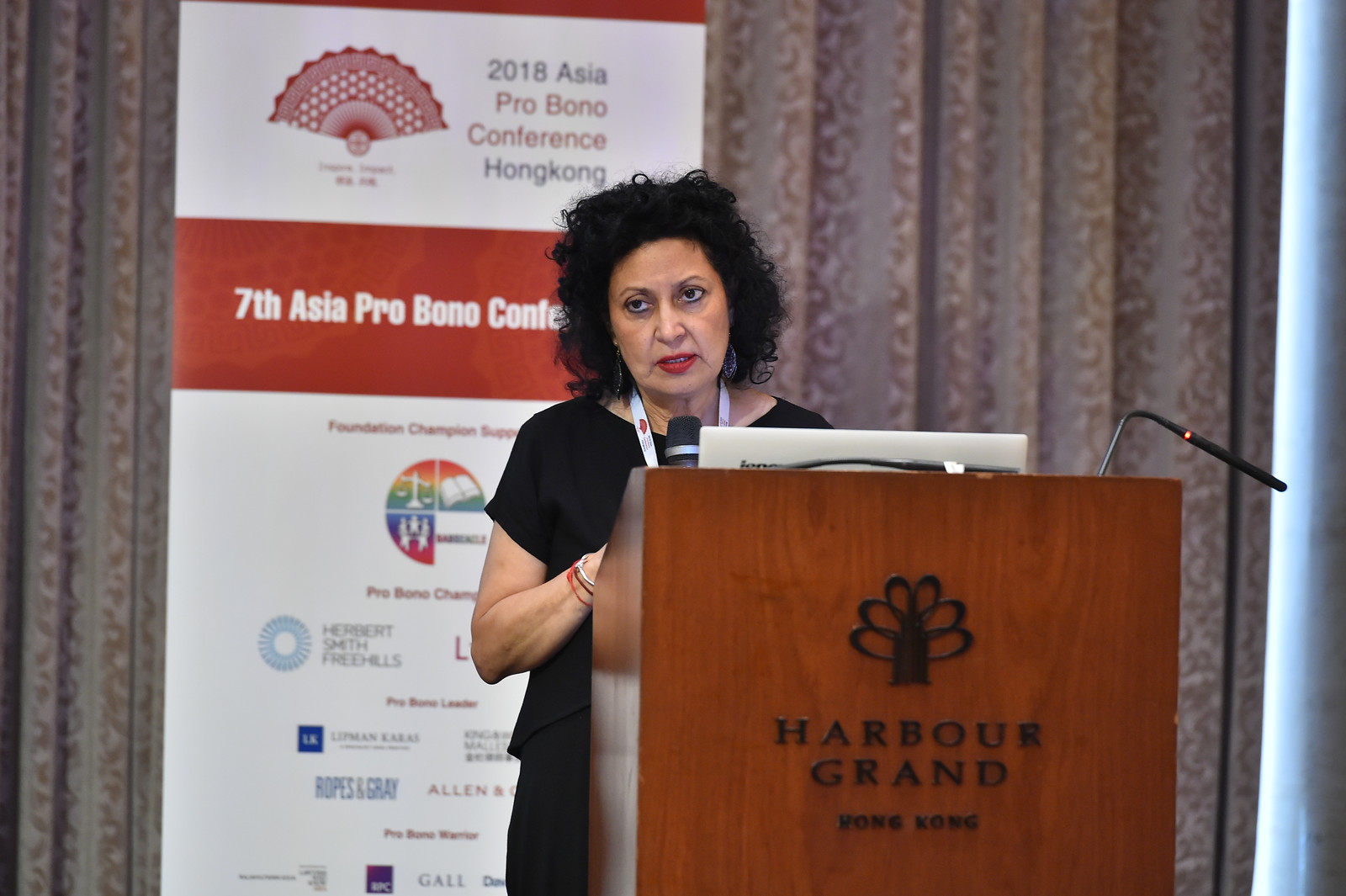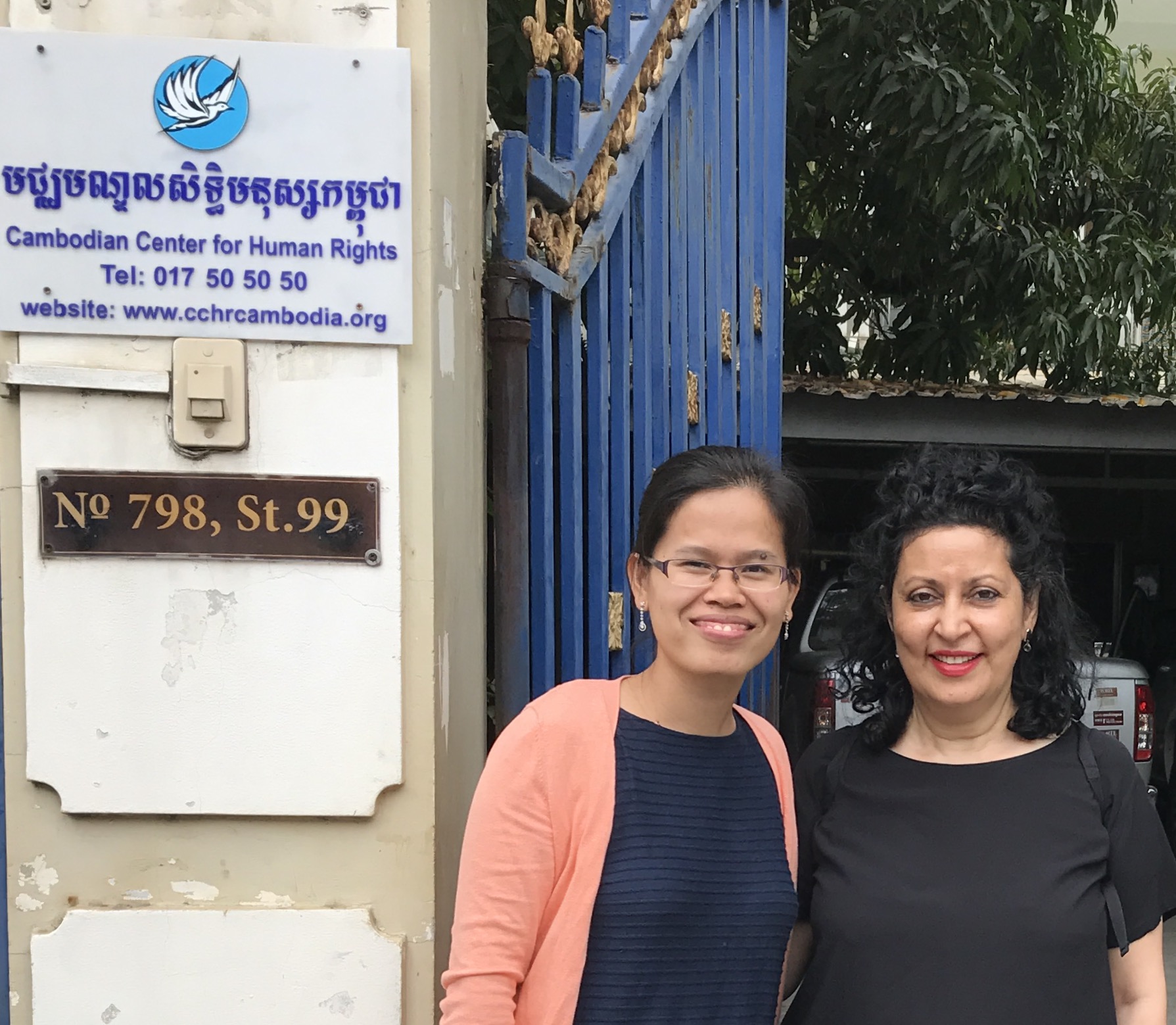2018 APBC&A2JX, Hong Kong
Don Peters
Pro bono and access to justice work comprised a major part of my 52-year career spanning direct legal service delivery as a legal aid lawyer, and as a clinical legal educator instructing and supervising law student practice in clinical courses and programs; and much of these rewarding efforts in the last decade were in Asia. This period has blessed me with incredible opportunities to collaborate with law students, law teachers, and social justice lawyers and judges in Vietnam, Laos, and Myanmar, and before that in India, Malaysia, and Thailand. Working on access to justice issues as a BABSEA Resident Clinician in Ho Chi Ming city, Vientiane, and Mawlamyine, and as an organizer and presenter for Asian Pro Bono conferences in Hong Kong and Kathmandu, allowed me to meet and work with inspiring and dedicated men and women who were grappling with similar challenges building social justice curricula and institutions and creating sustainable culturally and context sensitive ways to deliver essential pro bono legal services. These new colleagues displayed enormous energy and courage confronting obstacles far beyond those I encounter in the United States. These experiences taught me that important cultural and contextual limitations constrained transferring many of my US-based social justice and clinical legal education theories, ideas, and practices directly. They also generated vigorous discussions with my new colleagues from whom I had much to learn, often resulting in developing creative ways to adapt and blend my views into more appropriate initiatives while remaining faithful to universal, underlying social justice values of client-centeredness, emphasizing respecting clients and their rights to make fully informed decisions, and interest-based resolution of disputes and conflicts though negotiating and mediating directed toward identifying interests and satisfying as many of them as possible. All these experiences powerfully expanded my knowledge of and appreciation for the value of culture and context, and the ultimate value of collaboration to create and implement new ways to promote access to justice and pro bono sensitivity and practice. These experiences strengthened what I do in many ways. For example, they stimulated developing classes on identifying and working with cultural differences effectively that I taught in all my University of Florida College of Law classes. I also organized and presented sessions regarding these topics at three International GAJE conferences held in India and Indonesia. Additionally, these experiences helped me improve and expand my classes on pro bono’s critical importance and they influenced my efforts to develop the provision of mediation services as an important pro bono component. They also enhanced my creation and supervision of a county court mediation clinic using law students as mediators in small claims dispute . Unquestionably, I learned more than I taught, and received more than I gave, during this past decade of enjoying these marvelous opportunities to engage with Asian access to justice and pro bono stimulation and implementation.
Gopinath Pillai
Over the past five years or so, as the Director of Criminal Lega Aid Scheme in Singapore, I worked with a wonderful team consisting of lawyers and our own internal officers to ensure that the needy and indigent received assistance. One of the highlights was a scheme involving migrant workers, and every year, the APBC & A2 Exchange assisted me in this journey by the sharing during the conferences – which allowed me to “think out of the box, and apply some of the ideas shared for work. The passion that drives these sessions is unbelieveable – it reaffirms the reasons for people being involved in pro bono work
Rob Houston
Since the Asia Pro Bono Conference (APBC) was held in Malaysia in 2017, I have had the tremendous honor of attending, speaking, or assisting with its organization. The APBC has been so meaningful to me as a crossroads of the Asia Pro Bono Movement, a place where like-minded individuals gather together from across the legal spectrum to share ideas and to encourage one another in their important work. The APBC has been a forum to discuss the ongoing anti-slavery efforts of the law firm where I work as a pro bono coordinator and international disputes lawyer, and it is the place where I have met a number of new pro bono clients over the years. Of course, the APBC has also provided The Global Pro Bono Bar Association (or, The Global Pro Bono Bar) an opportunity to share its work on international legal professionalism in a 2018 joint A2J Exchange session with the UNHCR. When the pandemic made it impossible to gather in person, the APBC went virtual, allowing The Global Pro Bono Bar to share lessons learned from coordinating a virtual internship program with 35 students drawn from Asia, Australia, and the United States in the 2020 session Pro Bono Student Empowerment in a Post-Pandemic World. This year, at the close of this first decade of the APBC, the conference is yet again providing an opportunity for The Global Pro Bono Bar to highlight a unique sort of pro bono work that I and others have recently had the opportunity to undertake: drafting a model bilateral investment treaty for a developing country as a pro bono project, bringing together investment protection and business and human rights principles as treaty-based obligations for foreign investors for the first time ever. Times have changed since the first APBC was held, including the rise of a global pandemic that has challenged the fundamental way of operating for any conference. Throughout it all, however, the APBC continues to invigorate the Asia Pro Bono Movement, connecting the private sector, public sector, civil society and the full range of legal professionals, both in Asia and around the globe.
Yasmin Batliwala
A4ID has been developing a focus on South Asia over a number of years now. We have held a session on SDG 16 for government officials in India, a Conference in Delhi as well as a few events around Responsible Business, in respect to the UN Guiding Principles of Business and Human Rights.
The APBC has enabled us to extend our network, to find a wealth of like-minded colleagues and most importantly to participate in the growing movement that is Pro Bono. I have now personally attended 3 Conferences (two in person and one remote)and am amazed by the energy, enthusiasm and positivity of each Conference which promotes Pro Bono at its best.
The relationships which have developed at the Conferences have endured with the hope they will result in some collaborative work in the future. The knowledge gained from colleagues will assist in our thinking and future development of our work and the potential direction it will take.

